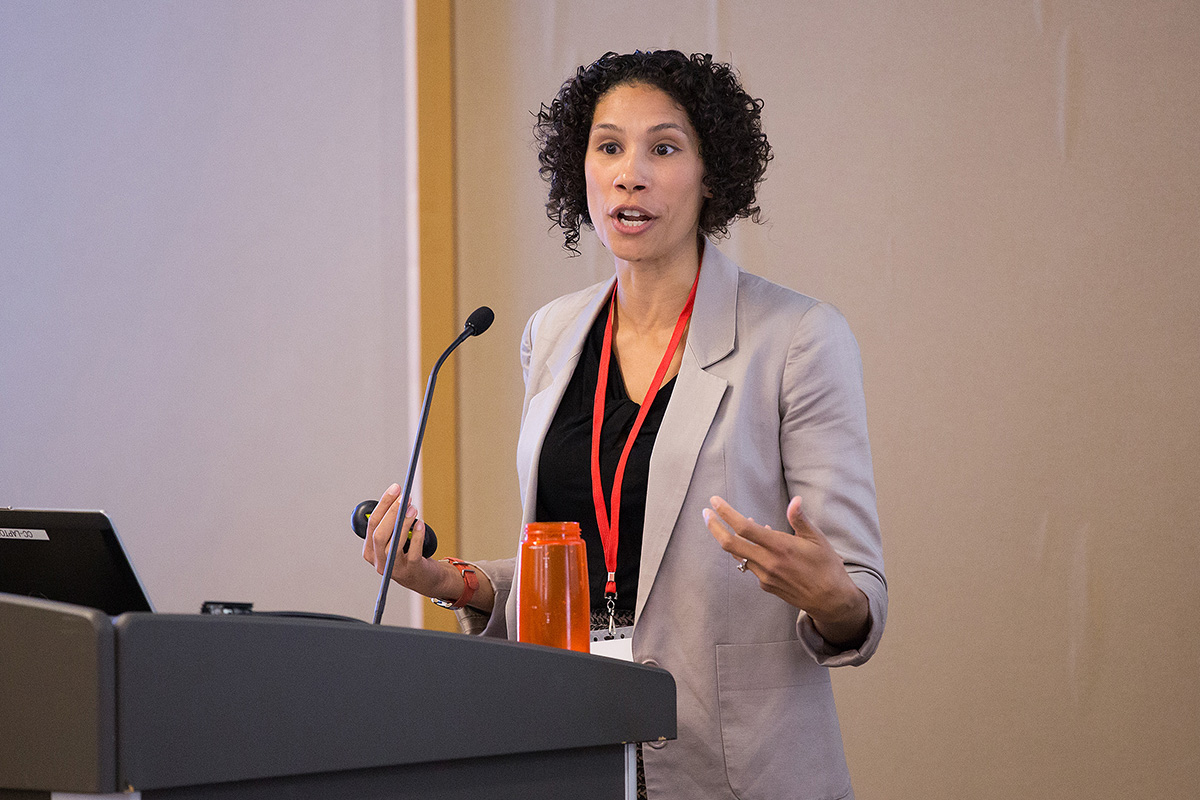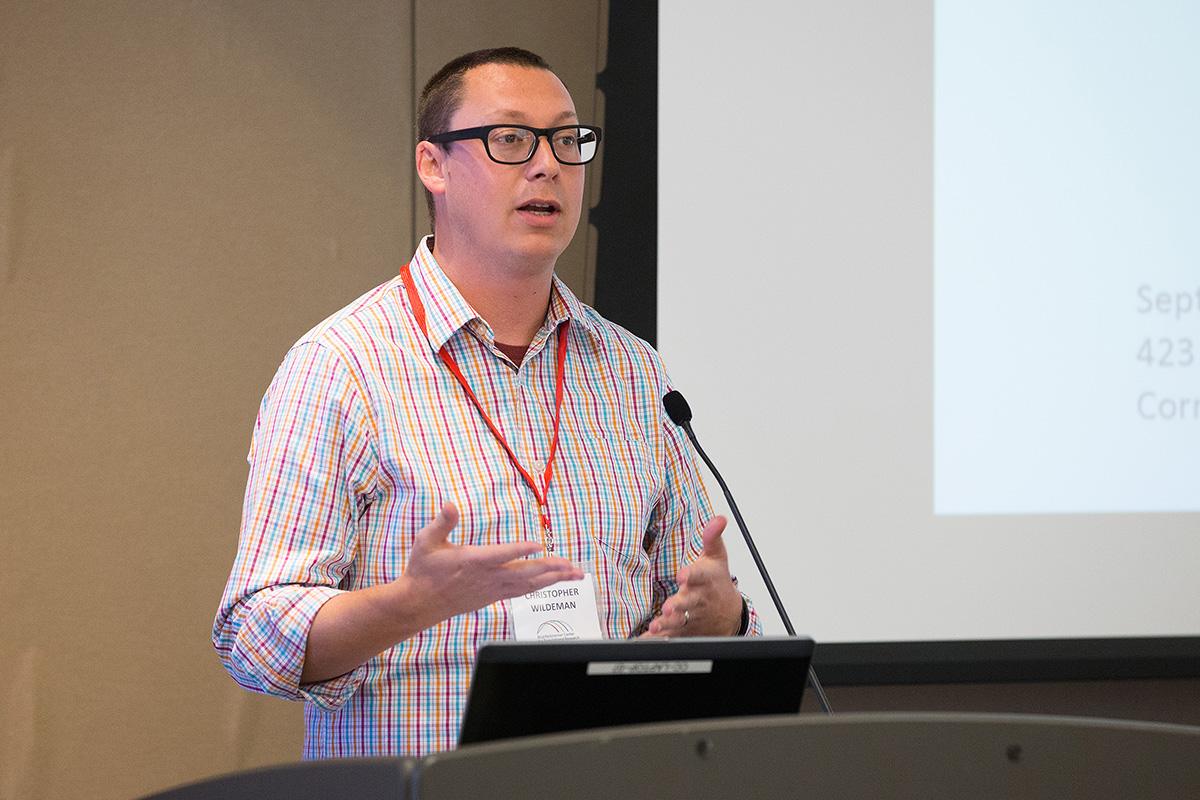Conference spotlights consequences of parental incarceration
By H. Roger Segelken

With millions of American parents, mostly fathers, locked in jails and prisons, a national conference at Cornell Sept. 15-16 shined the spotlight on their kids back home.
“Minimizing the Collateral Damage: Interventions to Diminish the Consequences of Mass Incarceration for Children” was the topic of the Fifth Biennial Urie Bronfenbrenner Conference, featuring a multidisciplinary mix of scholars from more than a dozen institutions and programs.
“One of the most shocking phenomena this country has witnessed in the last century has been the unprecedented rise in mass incarceration,” said conference co-organizer Anna Haskins, Cornell assistant professor of sociology and member of the Center for the Study of Inequality. An estimated 1 in 14 American children (about 7 percent) has a parent incarcerated at some point in their young lives, observed Haskins. Of special concern, she emphasized, “is the overwhelming disparity in which this issue touches African-American and Hispanic but not white populations.”
Haskins hopes the conference opens new areas of inquiry for social scientists. “We know more about the deleterious consequences for imprisoned individuals and former inmates,” she said, “but less attention has been paid to the broader fallout for families.”
The conference series and the Bronfenbrenner Center for Translational Research (BCTR) are named for Urie Bronfenbrenner (1917-2005), the renowned developmental psychologist who taught at Cornell for more than 50 years and developed the so-called ecological systems theory. Several conference-goers said the ecological approach could help to untangle incarceration’s effect on family and society.

Said conference co-organizer Christopher Wildeman, BCTR associate director and associate professor of policy analysis and management in the College of Human Ecology: “The conference’s multidisciplinary focus, in addition to being highly consistent with Urie’s own academic orientation, is also unique within this research field – where psychologists, sociologists, economists and criminologists who study the consequences of parental incarceration rarely publish in the same journals, attend the same conferences or grapple with each others’ perspectives.”
One productive outcome of the conference, Wildeman said, will be a proceedings volume with authors from all those fields, published by the American Psychological Association.
A third conference co-organizer, Julie Poehlmann-Tynan, professor of human ecology at the University of Wisconsin-Madison, said that “developmental perspectives are lacking” so far in most studies of incarceration’s consequences. Scholars need to know “how parental incarceration can get under the skin of children and influence through an entire life course.” When considering a child’s resilience in the face of parental incarceration, Poehlmann-Tynan said, researchers should remember “resilience is a process, not a characteristic or trait.” Some children appear to do surprisingly well during parental incarceration, she said. “We can’t paint the picture that parental incarceration (inevitably) is doom.”
Sara Wakefield, an associate professor in the Rutgers University School of Criminal Justice (and co-author, with Wildeman, of “Children of the Prison Boom: Mass Incarceration and the Future of American Inequality”) sought to correct some popular misconceptions. Many parents hide their criminal activity from their children – until, that is, they’re arrested, prosecuted and punished, she said. Furthermore, long sentences in state or federal prisons aren’t the only source of stigma and trauma among convicts’ children. Hundreds of thousands of Americans cycle through local jails every month, Wakefield said, “and even short spells in jail are highly consequential for children.”
Sociologist Kristin Turney, from the University of California, Irvine, highlighted possible effects of parental incarceration, including strains on parental relationships, economic well-being and health, and suggested children might develop behavior problems or experience diminished cognitive skills. Among the youngest children of incarcerated parents, boys seem to be most affected, Turney said. But as children mature, girls are more likely to be troubled by a father’s incarceration.
Joyce Arditti, professor of human development and family studies at Virginia Tech, reported some children growing up with an incarcerated biological parent they never knew – outside or inside prison walls – can still be affected by that stigmatizing association.
As for the Bronfenbrenner conference venue as an apt place to discuss family-ecological perspectives of child development, Arditti said: “It’s kind of cool to be here in his ‘backyard.’”
H. Roger Segelken is a freelance writer.
Media Contact
Get Cornell news delivered right to your inbox.
Subscribe